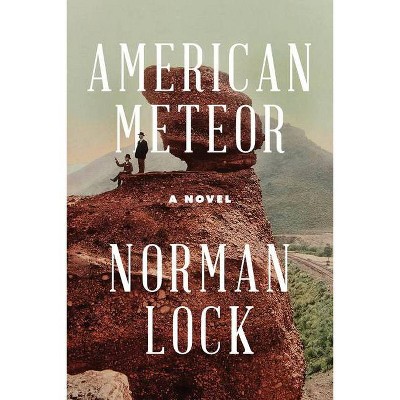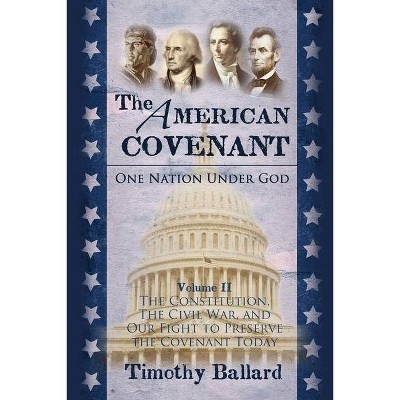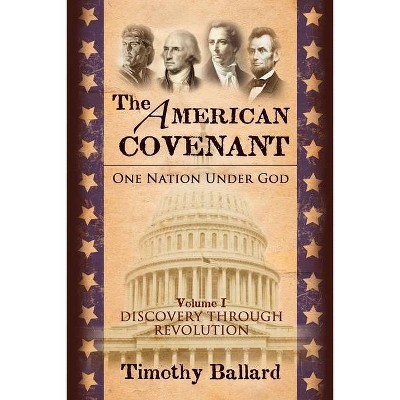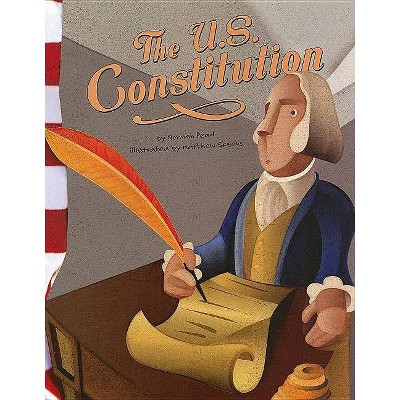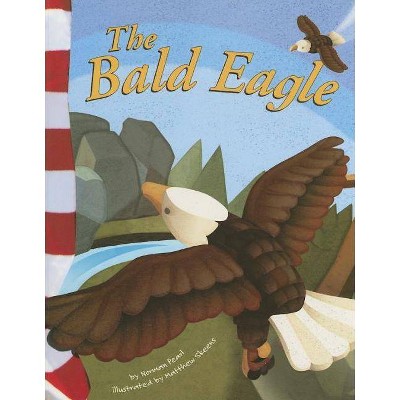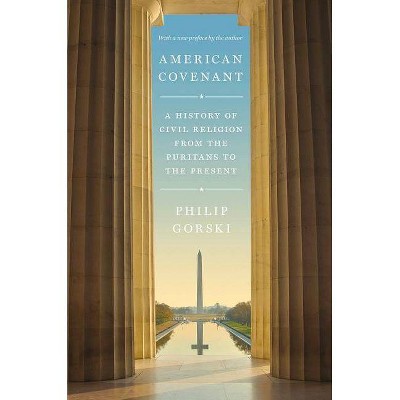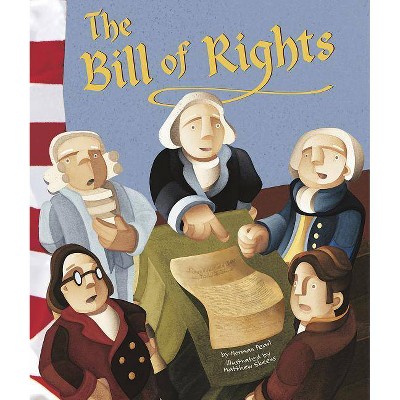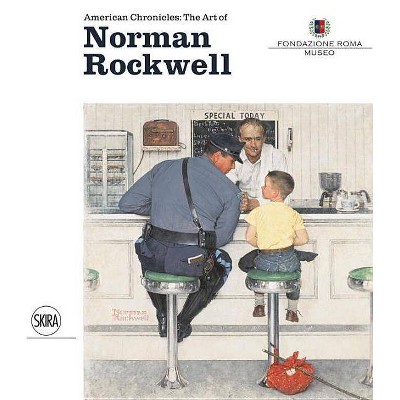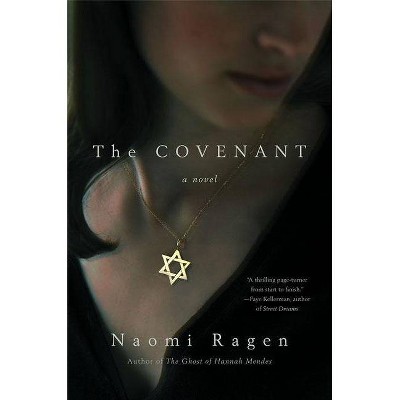Tooth of the Covenant - (American Novels) by Norman Lock (Paperback)
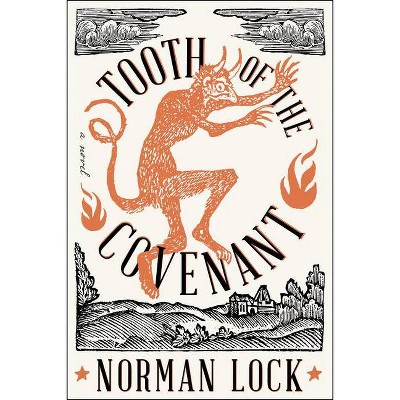
Similar Products
Products of same category from the store
AllProduct info
<p/><br></br><p><b> About the Book </b></p></br></br><p>In the eighth American Novels series book, Nathaniel Hawthorne pens a new tale to exact revenge on his ancestor, a notorious judge of the Salem witch trials.</p><p/><br></br><p><b> Book Synopsis </b></p></br></br><p><i><b>Nathaniel Hawthorne pens a new tale to exact revenge on his ancestor, a notorious judge of the Salem witch trials</i></b></p><p>Best known for his novel <i>The Scarlet Letter</i>, Nathaniel Hawthorne was burdened by familial shame, which began with his great-great-grandfather John Hathorne, the infamously unrepentant Salem witch trial judge. In this, the eighth stand-alone book in The American Novels series, we witness Hawthorne writing a tale entitled <i>Tooth of the Covenant</i>, in which he sends his fictional surrogate, Isaac Page, back to the year 1692 to save Bridget Bishop, the first person executed for witchcraft, and rescue the other victims from execution. But when Page puts on Hathorne's spectacles, his worldview is transformed and he loses his resolve. As he battles his conscience, he finds that it is his own life hanging in the balance.</p><p>An ingenious and profound investigation into the very notion of universal truth and morality, <i>Tooth of the Covenant</i> probes storytelling's depths to raise history's dead and assuage the persistent ghost of guilt.</p><p><b>Norman Lock</b> is the award-winning author of novels, short fiction, and poetry, as well as stage and radio plays. He lives in Aberdeen, New Jersey, where he is at work on the next books of The American Novels series.</p><p/><br></br><p><b> Review Quotes </b></p></br></br><br><p/> <p/> <p/> <p/> <p/> <p/> <p/> <p/> <p/><p><b>Praise for <i>Tooth of the Covenant</i></b></p><p><b><i>Fine<br>Books Magazine</i> "Editor's Shelf" selection<br><i>Foreword Reviews</i> "Book of the Day" selection</b></p><p>"Bold and imaginative. . . . Probing into<br>the dark corners of fear, guilt, and morality, Lock produces something<br>unexpected." --<b><i>Fine Books<br>Magazine</i></b></p><p>"Splendid. . . . Lock<br>masters the interplay between nineteenth-century Hawthorne and his fictional<br>surrogate, Isaac, as he travels through Puritan New England. The historical<br>details are immersive and meticulous." --<b><i>Foreword Reviews</i><br>(starred review)</b></p><p>"A<br>distinctive and ambitious foray into literary history." <br>--<b><i>Kirkus Reviews</i></b></p><p>"A<br>reflective and subtly poignant look at Nathaniel Hawthorne. . . . Lock displays<br>a nimble virtuosity as he captures the speech of the time while demonstrating<br>how the implicit bias, bigotry, and hypocrisy of Puritanism became the cancel<br>culture of its day." <br>--<b><i>Booklist</i></b></p><p>"The<br>novel's somber exploration of American cruelty and religious intolerance is<br>balanced by its nimble prose, sly wit, and engaging glimpse<br>of a literary figure. Lock's latest ambitious look at America's history will<br>delight fans of the series and earn new converts." --<b><i>Publishers Weekly</i></b></p><p>"Lock's clever voice, shapely<br>prose and shrewd observations help lighten the story's mood, and the novel's<br>look at intolerance couldn't be more timely." --<b><i>Society Nineteen</i></b></p><p><b>Select<br>Praise for Norman Lock's The American Novels<br>Series</b></p><p></p><p>"Shimmers with glorious<br>language, fluid rhythms, and complex insights." --<b>NPR</b></p><p>"Our national history and literature<br>are Norman Lock's playground in his dazzling series, The American Novels. . . .<br>[His] supple, elegantly plain-spoken prose captures the generosity of the<br>American spirit in addition to its moral failures, and his passionate<br>engagement with our literary heritage evinces pride in its unique character."<br>--<b><i>Washington Post</i></b></p><p>"Lock<br>writes some of the most deceptively beautiful sentences in contemporary<br>fiction. Beneath their clarity are layers of cultural and literary references, <br>profound questions about loyalty, race, the possibility of social progress, and<br>the nature of truth . . . to create something entirely new--an American fable of<br>ideas." --<b><i>Shelf Awareness</i></b></p><p>"[A]<br>consistently excellent series. . . . Lock has an impressive ear for the<br>musicality of language, and his characteristic lush prose brings vitality and<br>poetic authenticity to the dialogue." --<b><i>Booklist</i></b></p><p><b>On<br><i>The Boy in His Winter</i></b></p><p>"[Lock]<br>is one of the most interesting writers out there. This time, he re-imagines<br>Huck Finn's journeys, transporting the iconic character deep into America's<br>past--and future."<br>--<b><i>Reader's Digest</i></b></p><p><b>On<br><i>American Meteor</i></b></p><p>"[Walt Whitman]<br>hovers over [<i>American Meteor</i>], just as Mark Twain's spirit<br>pervaded <i>The Boy in His Winter</i>. . . . Like all Mr. Lock's<br>books, this is an ambitious work, where ideas crowd together on the page like<br>desperate men on a battlefield." --<b><i>Wall Street<br>Journal</i></b></p><p><b>On <i>The<br>Port-Wine Stain</i></b></p><p>"Lock's novel engages not merely with<br>[Edgar Allan Poe and Thomas Dent Mütter] but with decadent fin de siècle art<br>and modernist literature that raised philosophical and moral questions about<br>the metaphysical relations among art, science and human consciousness. The<br>reader is just as spellbound by Lock's story as [his novel's narrator] is by<br>Poe's. . . . Echoes of Wilde's <i>The Picture of Dorian Gray</i><br>and Freud's theory of the uncanny abound in this mesmerizingly twisted, richly<br>layered homage to a pioneer of American Gothic fiction." --<b><i>New<br>York Times Book Review</i></b></p><p><b>On<br><i>A Fugitive in Walden Woods</i></b></p><p>"<i>A Fugitive in Walden Woods</i> manages<br>that special magic of making Thoreau's time in Walden Woods seem fresh and<br>surprising and necessary right now. . . . This is a patient and perceptive<br>novel, a pleasure to read even as it grapples with issues that affect the<br>United States to this day." --<b>Victor LaValle</b>, author of<br><i>The Ballad of Black<br>Tom</i> and <i>The Changeling</i></p><p><b>On <i>The Wreckage<br>of Eden</i></b></p><p>"The lively passages of Emily [Dickinson's]'s<br>letters are so evocative of her poetry that it becomes easy to see why Robert<br>finds her so captivating. The book also expands and deepens themes of moral<br>hypocrisy around racism and slavery. . . . Lyrically written but unafraid of<br>the ugliness of the time, Lock's thought-provoking series continues to<br>impress." --<b><i>Publishers<br>Weekly</i></b></p><p><b>On <i>Feast Day of<br>the Cannibals</i></b></p><p>"Lock does not merely<br>imitate 19th-century prose; he makes it his own, with verbal<br>flourishes worthy of [Herman] Melville." --<b><i>Gay & Lesbian<br>Review</i></b></p><p><b>On<br><i>American Follies</i></b></p><p>"<i>Ragtime</i><br>in a fever dream. . . . When you mix 19th-century racists, feminists, <br>misogynists, freaks, and a flim-flam man, the spectacle that results might bear<br>resemblance to the contemporary United States." --<b><i>Library<br>Journal</i> (starred review)</b></p><br><p/><br></br><p><b> About the Author </b></p></br></br><p><b>Norman Lock</b> is the award-winning author of novels, short fiction, and poetry, as well as stage and radio plays. He has won The Dactyl Foundation Literary Fiction Award, <i>The Paris Review</i> Aga Khan Prize for Fiction, and has been longlisted twice for the Simpson/Joyce Carol Oates Prize. He has also received writing fellowships from the New Jersey State Council on the Arts, the Pennsylvania Council on the Arts, and the National Endowment for the Arts. He lives in Aberdeen, New Jersey, where he is at work on the next books of The American Novels series.</p>
Price History
Price Archive shows prices from various stores, lets you see history and find the cheapest. There is no actual sale on the website. For all support, inquiry and suggestion messages communication@pricearchive.us
